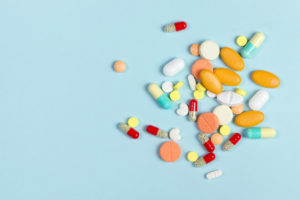Water is essential for life. It is vital for our body to function correctly. But how much water do we really need every day to keep us healthy? Let’s find out.
Importance of Hydration for Overall Health
Staying hydrated is crucial for maintaining optimal health. Water helps our bodies perform many essential functions, from regulating body temperature to keeping joints lubricated. Some of the key benefits of hydration include:
- Supports cognitive function to help enhance concentration, memory, and mood stability.
- Maintains blood volume and effective transportation of nutrients and oxygen to different tissues around the body.
- Assists with digestion and makes saliva to break down foods.
- Maintains healthy skin by keeping it moisturized and aids in the repair of skin cells.
- Keeps the organs functioning properly, such as helping the kidneys to get rid of waste products.
- Ensures that the cardiovascular system operates efficiently, reducing the likelihood of heart-related issues.
- Regulates body temperature through sweat production and respiration.
- Protects the brain and spinal cord (and fetus during pregnancy), acting as a shock absorber.
- Makes up the synovial fluid that lubricates and cushions the joints.
- Keeps the eyes lubricated and healthy.
In addition to promoting good health, keeping hydrated also helps prevent headaches and fatigue (common symptoms of dehydration) and the development of urinary tract infections (UTIs), kidney stones, and constipation. It can also improve sleep quality.
For athletes and those engaging in physical activity, staying hydrated improves performance and endurance, while also aiding in post-exercise recovery. Ultimately, good hydration is a cornerstone of a healthy lifestyle, benefiting both the mind and body.
Signs of Dehydration to Look Out For
Dehydration occurs when your body loses more water than it consumes. The color of your urine can be used as a good indicator of when you need to drink more. Here are the main signs to watch for:
- Dry mouth
- Dark and strong-smelling urine
- Feeling thirsty
- Fatigue
- Headache
- Dizziness
If you notice any of these signs, it’s time to drink more water.
Daily Water Intake Recommendations
The quantity of water you need depends on various factors. However, the U.S. National Academies of Sciences, Engineering, and Medicine determined that the adequate daily fluid intake for an average healthy adult living in a temperate climate to be:
- Approximately 3.7 liters (15.5 cups) of fluids a day for men
- Approximately 2.7 liters (11.5 cups) of fluids a day for women
These recommendations include fluids from drinks and food, with approximately 20% of daily fluid intake usually coming from food. Although plain water is best, all fluids (apart from alcohol) count towards the recommended daily intake, helping to keep you hydrated.
What you eat also contributes significantly to your daily water intake. Many fruits and vegetables, like watermelon, cucumber, and spinach, are composed of almost 100% water by weight.
Factors That Affect Your Hydration Needs
According to the Mayo Clinic, your hydration needs can change based on factors, such as:
- Physical Activity: When exercising, a significant amount of water is lost through sweat. If you exercise, you must drink more to replace lost fluids.
- Health Conditions: Certain illnesses and medications can affect how much water you need. Experiencing vomiting or diarrhea can lead to dehydration (especially in young children) due to loss of fluids. During illness, it is essential to increase water intake to compensate for this fluid loss and maintain proper hydration levels.
- Age: Older adults are more vulnerable to dehydration due to physiological changes that occur as a part of the aging process, such as a reduction in renal function.
- Pregnancy and breastfeeding: Causes you to lose more fluid, therefore, you may need additional fluids to stay hydrated.
- Weather: Hot or humid weather makes you sweat more, so you need more water during the summer.
- Alcohol Consumption: Alcohol leads to an increase in urine production, which can result in dehydration. It is important to limit alcohol consumption and drink water to maintain hydration when consuming alcohol.
Tips for Staying Properly Hydrated
The key to staying hydrated is to start drinking in the morning and continue drinking regularly throughout the day. Here are some simple tips to help you stay hydrated:
- Carry a water bottle with you all day.
- Drink water before, during, and after exercise.
- Eat water-rich foods like vegetables and fruits daily.
- Set reminders to drink water throughout the day.
- Always have a glass of water with meals.
Myths About Hydration
There are many myths about hydration. One prevalent myth suggests that everyone requires eight glasses of water a day. While it’s a good general guideline, individual needs may vary. It’s also a myth that caffeinated drinks dehydrate you. While they can have a stimulating effect, causing the body to produce urine more quickly, they can still contribute to your daily fluid intake.
Family Doctor in Wellington, Florida
At Advanced Medical in Wellington and Royal Palm Beach, Florida, we care about your health. Our experienced and compassionate internal and family medicine providers offer personalized treatment. With a focus on preventive care, we will work with you to keep you and your loved ones in optimal health.
We value the patient-provider relationship and aim to provide exceptional service. If you seek evidence-based medical care, request an appointment or call us at (561) 434-1935 today. We offer walk-in and same-day appointments for your convenience.
Keeping hydrated can improve your overall health and well-being. Keep these tips in mind, and remember, if you have any health concerns, we are here to help. Stay healthy and hydrated!










